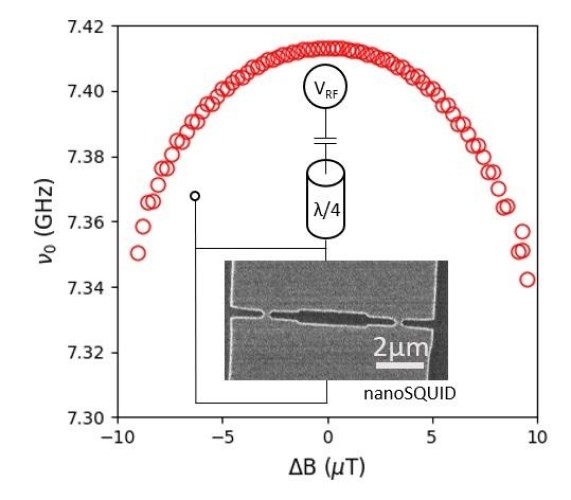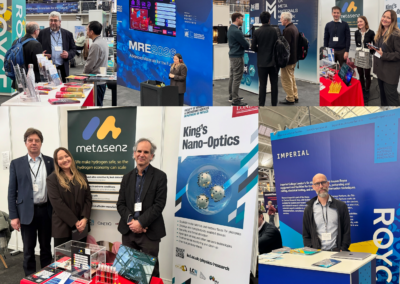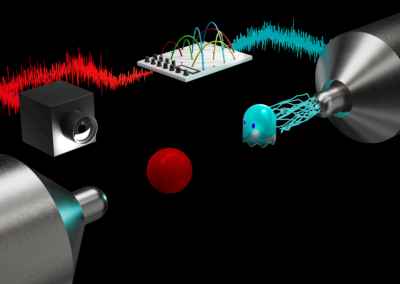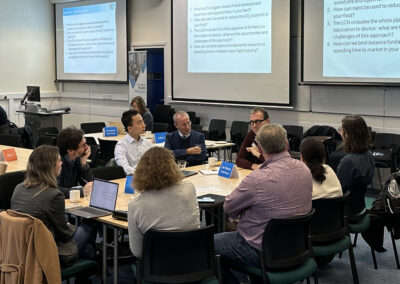The direction of quantum research indicates that future computers will require a ‘quantum hard-drive’; where quantum information is stored before future processing. Spin-ensemble memories can have extremely long coherence times, particularly at magnetic field sweet-spots such as “clock transitions” making them a suitable host for long-lived quantum information. For spin-ensemble memories to be operated as a quantum memory, quantum information must be coherently stored in, and retrieved from, the spin ensemble. Hybrid superconducting-spin systems offer the potential to combine highly coherent atomic quantum systems with the scalability of superconducting circuits.
An essential element for the storage and retrieval protocols required are high quality factor tunable microwave resonators. In the strong coupling limit (allowed by high quality factor resonators), quantum photons are coherently transferred between the microwave resonator and the spin ensemble whilst maintaining quantum state of the microwave photon. Frequency tunability allows for quantum information to be transferred from the resonator to the spin ensemble before the resonator is detuned in frequency from the spin ensemble. This means that once stored in the spin ensemble, quantum information cannot leak back in to the resonator.
LCN researchers have developed a single layer technology based on embedding nanoSQUIDs in superconducting niobium resonators to realise high quality frequency tunable devices which are resilient to moderate fields. It is anticipated that these devices will enable tunable-resonator-enhanced ESR protocols to be performed at specific magnetic fields and frequencies, such as storing quantum information in spins at low-decoherence “clock transitions” and can enable multi-frequency high-sensitivity electron spin resonance (ESR).
The full research paper can be found in Physical Review Applied
Related link: UCL Quantum Science and Technology Institute



